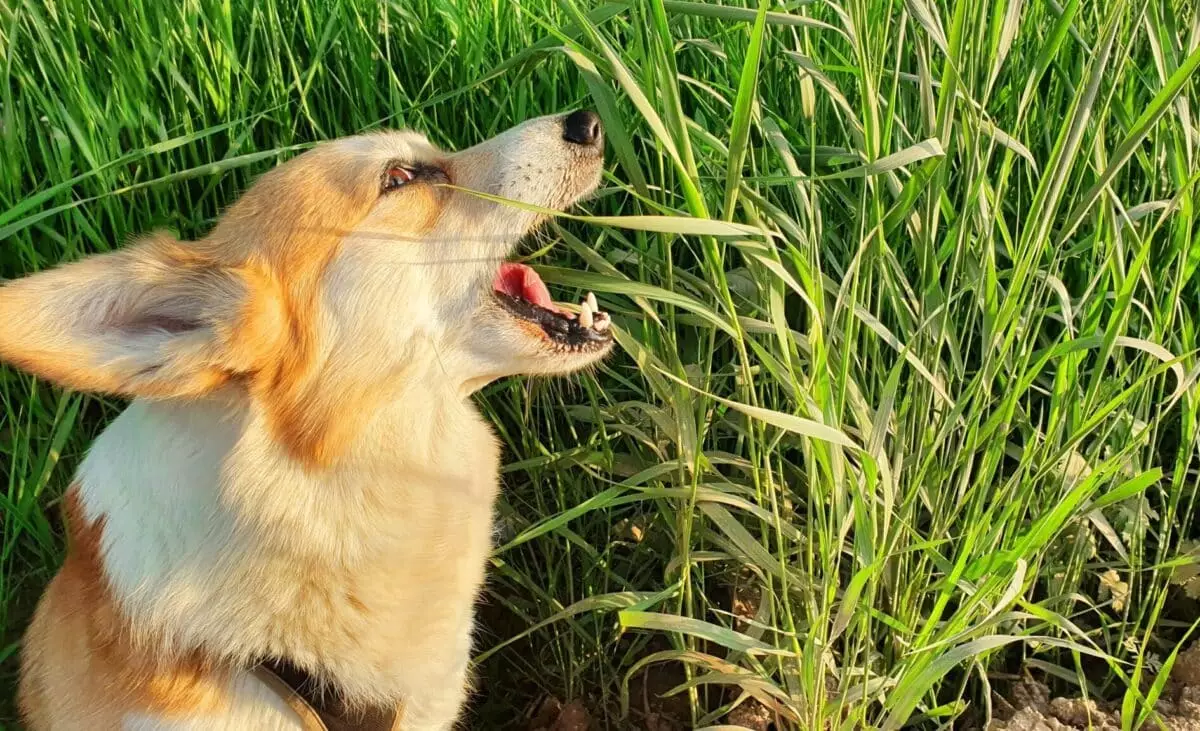Dogs are often seen nibbling on grass, leading to a wave of confusion for many pet owners. This peculiar act, often followed by vomiting, may trigger concerns about their health. However, this behavior is deeply embedded in a dog’s instincts. Wild canines, such as wolves or foxes, consumed plant matter to cleanse their systems of parasites and other indigestible materials. Although domestic dogs enjoy a much more stable lifestyle, they still carry vestiges of these ancestral behaviors. Thus, when dogs partake in grass eating, it may be a mechanism for self-cleansing, allowing them to rid their systems of potential irritants and maintain digestive health.
Dietary Needs: The Fiber Factor
Another plausible reason dogs eat grass may relate to their dietary fiber intake. A lack of sufficient fiber in a dog’s diet could drive them to seek out grass as a natural source. While grass does contain fiber, dogs cannot effectively digest it. Consequently, ingesting grass can churn up their stomach and lead to vomiting. Pet owners noticing frequent grass munching might want to reassess their dog’s diet. Incorporating fiber-rich foods, such as vegetables and high-quality dog food, can offer a more balanced approach to their nutritional needs and potentially lessen this grass-eating behavior.
Boredom can act as a significant catalyst for dogs to engage in various behaviors, including grass eating. Dogs that lack sufficient physical exercise or mental stimulation may turn to grass as a recreational activity. This is particularly common among high-energy breeds that require consistent enrichment to keep them engaged. Grass consumption can serve as an outlet for their pent-up energy, albeit an unsettling one that may lead to vomiting. To mitigate this, pet owners should ensure that their dogs have ample opportunities for physical activity, social interaction, and mental challenges through toys or structured playtime.
Self-Soothing: An Instinctive Response
Beyond instinct, some dogs may consume grass as a way to self-soothe. Dogs experiencing nausea or digestive distress may instinctively turn to grass in an effort to relieve their discomfort. This act can provoke vomiting, which might provide relief from whatever ailment they are facing. This behavior exemplifies a unique form of self-medication, demonstrating a dog’s instinct to find their way back to comfort. If a dog consistently turns to grass when feeling unwell, it is vital to monitor their overall health and consult a veterinarian if these episodes become frequent.
Moreover, it’s essential to recognize that dogs, being social animals, may eat grass as a means of attracting attention from their owners. If a dog learns that grass consumption leads to increased focus or concern from their human, they may repeat the behavior to elicit responses. Therefore, if attention-seeking becomes a factor in grass-eating habits, it’s crucial for owners to engage their pets in more meaningful interaction—be it through play or training—to foster a sense of well-being that does not revolve around negative behaviors.
Environmental Stressors: The Emotional Component
Stress and anxiety can play significant roles in a dog’s behavioral patterns, including grass consumption. Dogs facing changes in their surroundings, such as moving houses, new family members, or disruptions to their routine may find comfort in the act of eating grass. This behavior, while seemingly harmless, can escalate to vomiting when consumed excessively or too rapidly. To manage stress-related behaviors, creating a safe and stable environment for dogs is essential, allowing them to thrive emotionally and reducing their reliance on non-constructive coping mechanisms like grass eating.
Dogs are inherently curious creatures. Young pups, in particular, often treat the world as their personal playground. Grass-eating can stem from this natural inclination to explore their environment. While this phase is usually benign, pet owners should monitor their dogs for potential exposure to harmful chemicals or pesticides that may be present in grass. Creating a safe exploration zone and offering dog-friendly plants can satisfy their curiosity without the danger of ingesting something harmful.
Interestingly, grass-eating behavior may intensify during certain seasons. Fresh, vibrant grass in the spring and summer can be more appealing due to its moisture and texture. Dogs might be drawn to the variations in their environment, becoming more curious and active. Utilizing this seasonal behavior to promote alternative activities can help owners direct their dog’s attention away from the grass and toward more enriching interactions.
Understanding the multifaceted reasons behind dogs eating grass and subsequently vomiting sheds light on a common yet puzzling behavior for pet owners. From instinctive urges and dietary deficiencies to boredom and emotional needs, the motivations can be diverse and complex. By adequately addressing these underlying issues through proper diet, enriched environments, and attentive care, dog owners can alleviate concerns regarding their pet’s grass-eating habits. Ultimately, a comprehensive approach that considers both the physical and emotional requirements of dogs will foster healthier and happier companions.

